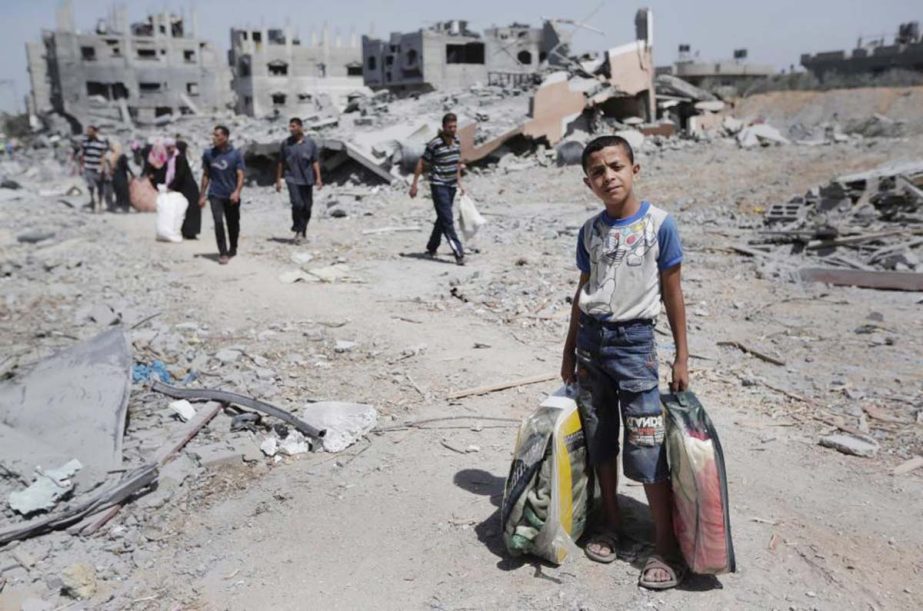
AFP, Washington :
The United States Monday denounced a move by Israel to freeze the transfer of tax revenues to the Palestinians in retaliation for their bid to join the International Criminal Court.
“We’re opposed to any actions that raise tensions. And obviously, this is one that raises tensions,” State Department spokeswoman Jen Psaki said.
Israel froze about half a billion shekels in tax revenue, or about $127 million to the cash-strapped Palestinian Authority after it applied on Friday to join the International Criminal Court (ICC) in the Hague.
US Secretary of State John Kerry spoke with Israeli Prime Minister Benjamin Netanyahu over the weekend and a US team has been in touch with Palestinian leaders.
“What we are trying to avoid here is a back and forth tit-for-tat,” Psaki said.
“We call on both sides to avoid actions that raise tensions and make it more difficult to return to direct negotiations.” But she renewed US warnings that any move by the Palestinians to take action against Israeli officials and military leaders at the ICC could have “implications” for US aid to the Palestinian Authority.
“Congress has a great deal of power in that regard, and that has been historically true. They’re obviously watching closely what happens,” she told reporters.
It would seem that under a giant complex spending bill passed in December to fund the US budget through the fiscal year 2015, any move to haul Israel before the ICC and impose charges of war crimes would trigger a freeze on US aid to the Palestinians.
Psaki suggested that unlike in other foreign aid issues US Secretary of State John Kerry would not have the power to waive the freeze.
“On waiver authority, I don’t believe that applies here,” she said.
She reiterated that the US administration believed the Palestinian bid to join the ICC was “entirely counter-productive and does nothing to further the aspirations of the Palestinian people for a sovereign and independent state.”
After the Palestinians won the upgraded UN rank of observer state in November 2012, Israel froze the tax monies and also announced plans for 3,000 homes in a highly sensitive area of the West Bank, as well as in annexed east Jerusalem, triggering a furious response from the international community.
While the United States has a wide range of responses to the Palestinian move, it would seem the administration is waiting to see what the new incoming Republican-led Congress will do when it convenes on Tuesday.
“I don’t have anything else to preview for you,” Psaki stressed.
“The next step would be Congress deciding what step or action they may take as it relates to assistance.”
Meanwhile, a fierce debate is raging within Israel’s military over the extent to which soldiers should be held legally accountable for their actions during last year’s Gaza war, with commanders increasingly at odds with military lawyers. The dispute has set off a firestorm in Israel, where many say the legal threat would shackle soldiers in any future battle, lower their morale and shatter a sacred trust on which Israel’s compulsory military service relies.
But with the Palestinians announcing their application last week to the International Criminal Court, the decision to investigate becomes all the more pressing: A robust Israeli inquiry into its military’s actions could be essential in thwarting an embarrassing and potentially incriminating outside probe.
Israel launched the operation in Gaza on July 8 in what it said was a mission to halt relentless rocket fire by Hamas militants. During 50 days of fighting, more than 2,100 Palestinians were killed, most of them civilians, according to the Hamas-run Health Ministry and the United Nations. On the Israeli side, 66 soldiers and 6 civilians were killed.
Israel has defended the operation as an act of self-defense and blamed Hamas for the heavy civilian death toll, saying the militant group used residential areas for cover. But critics have pointed to the heavy Palestinian civilian death toll and questioned whether Israel’s response was proportionate.
Israel has also come under fire from critics who say it fails to thoroughly investigate its military operations or prosecute soldiers for abuses.

